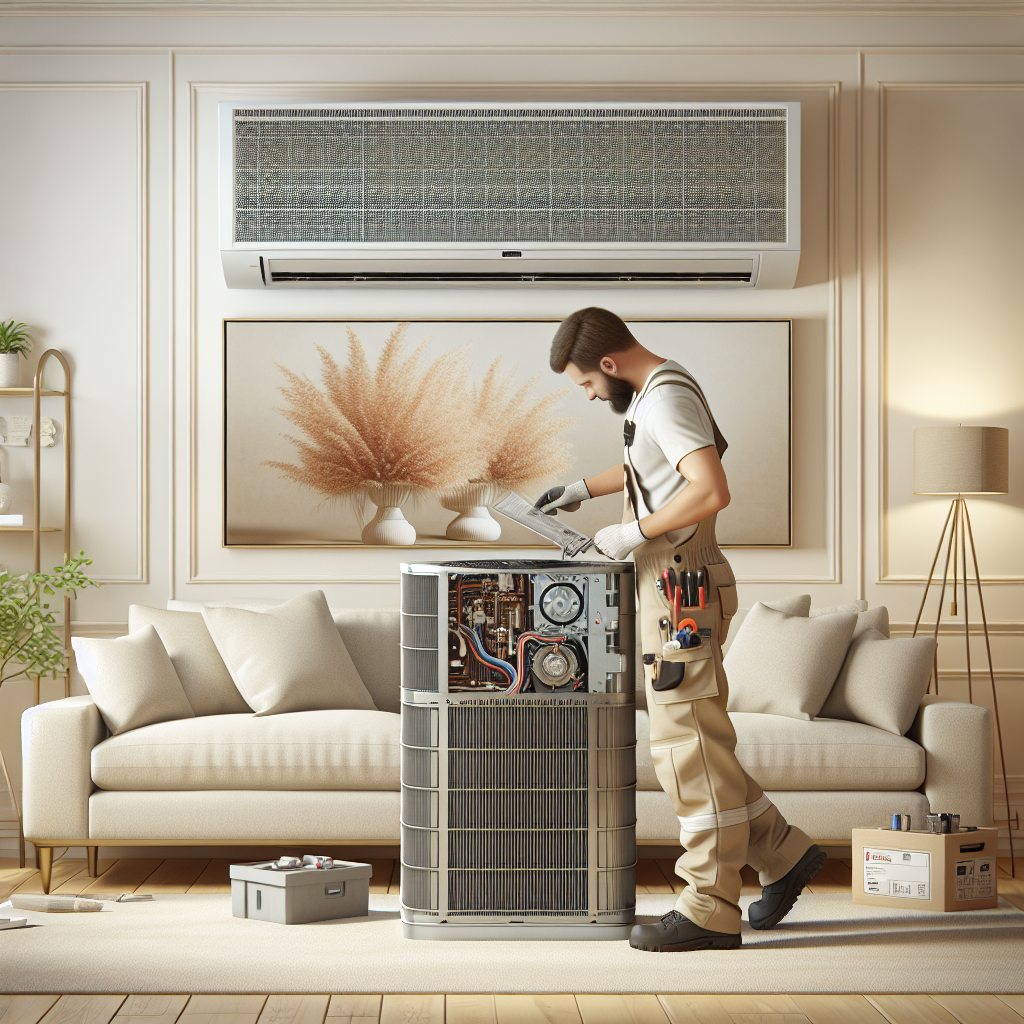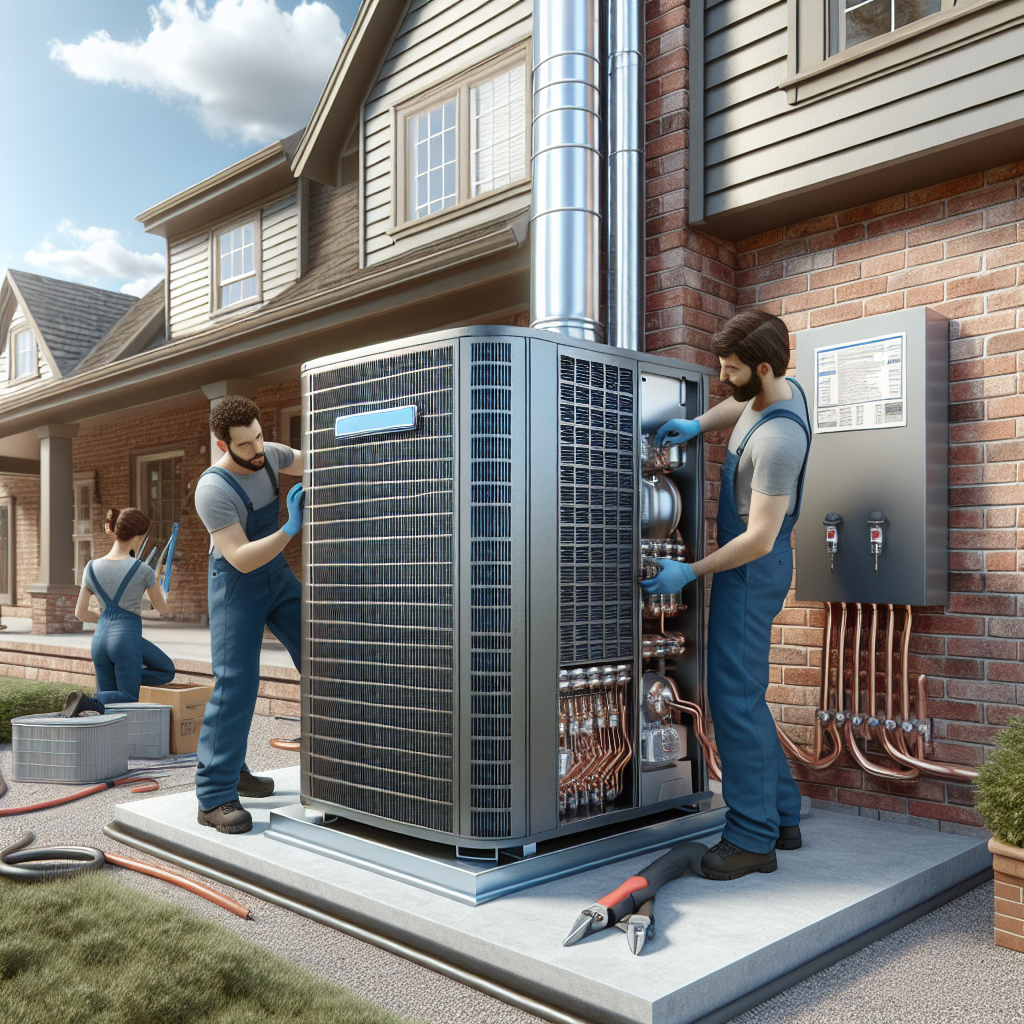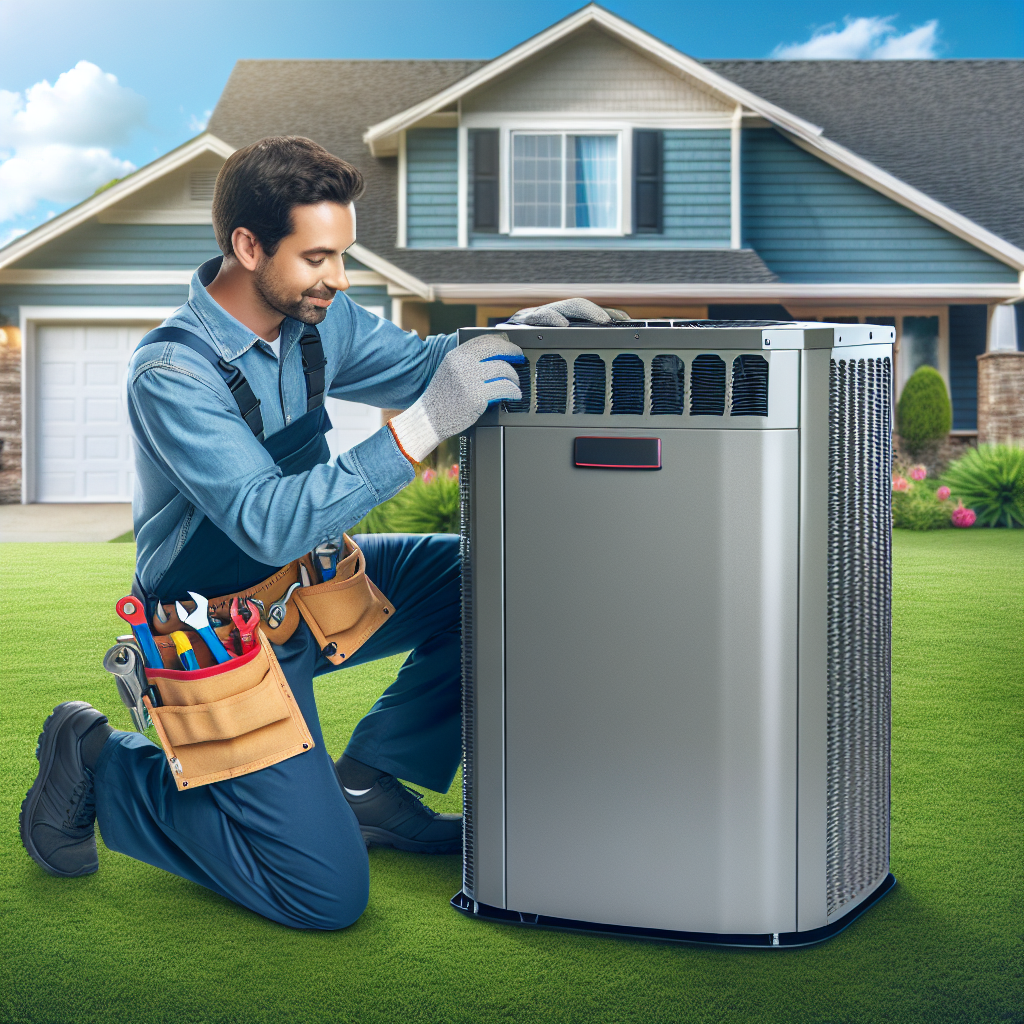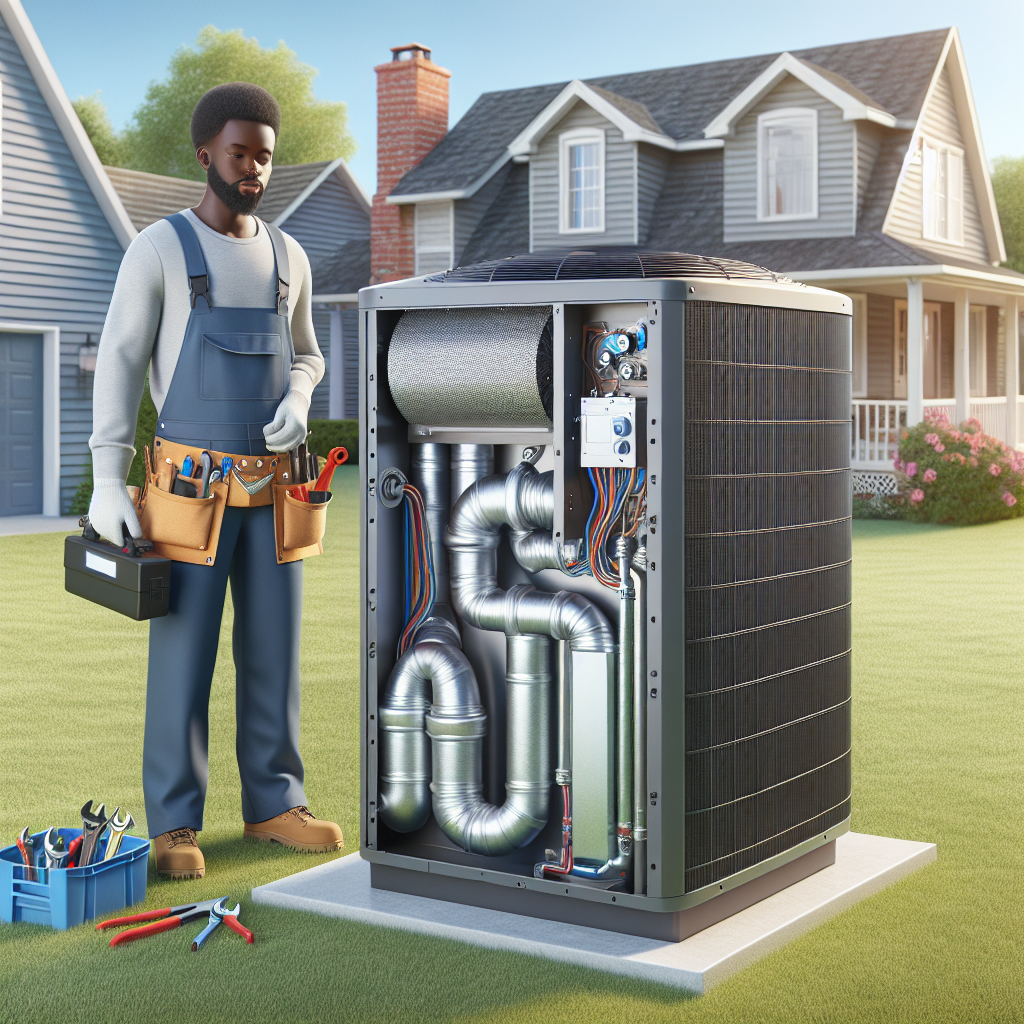
HVAC Replacement and Installation Cost: What to Expect
When it comes to maintaining a comfortable indoor environment, your HVAC system plays a crucial role. However, there comes a time when repairs are no longer enough, and a replacement becomes necessary. Understanding the *costs associated with HVAC replacement and installation* can help you make an informed decision and budget accordingly. In this article, we will delve into the various factors that influence these costs, the types of systems available, and practical tips for saving money.
The cost of HVAC replacement can vary widely based on several factors, making it essential to have a clear understanding of what to expect. Factors such as the size of your home, the type of HVAC system you choose, and the complexity of the installation process all play a significant role in determining the final price. Additionally, geographical location, seasonal demand, and the specific requirements of your property can further influence the costs.
At *Harmony Air LLC*, our goal is to provide you with transparent and competitive pricing for all your HVAC needs. Our experienced technicians are dedicated to ensuring that your new system is installed efficiently and that it meets your specific comfort requirements. If you’re considering an HVAC replacement, now is the perfect time to call us at 772-203-2571 or visit our website at harmony-air.com to schedule a consultation.
Factors Influencing HVAC Installation Price

Several key factors can *influence the overall cost of HVAC installation*. Understanding these variables can help you anticipate expenses and make more informed decisions.
- System Size and Capacity: The size of the HVAC system required for your home directly impacts the cost. Larger homes typically need more powerful systems, which are more expensive. A professional load calculation can help determine the appropriate size for your needs.
- Type of System: Different types of HVAC systems, such as central air conditioning, heat pumps, ductless mini-splits, or geothermal systems, come with varying price tags. Each system has its unique advantages and costs, so it’s essential to choose one that fits your budget and comfort preferences.
- Installation Complexity: The complexity of the installation process can significantly affect the price. For instance, if your home requires extensive ductwork modifications or additional electrical work, the costs will increase. Older homes or those without existing ductwork may also incur higher installation expenses.
- Geographical Location: The cost of living and labor rates in your area can impact HVAC installation prices. Urban areas or regions with a higher cost of living typically have higher labor costs, which can increase the overall expense.
- Seasonal Demand: HVAC installation prices can fluctuate based on seasonal demand. During peak seasons, such as summer and winter, prices may be higher due to increased demand for HVAC services. Scheduling your installation during the off-season can sometimes lead to cost savings.
- Energy Efficiency and Features: Systems with higher energy efficiency ratings or advanced features, such as smart thermostats and variable-speed motors, often come at a premium. However, investing in these features can result in long-term energy savings and increased comfort.
By considering these factors, you can better understand the potential costs involved in your HVAC installation project and plan accordingly.
Types of HVAC Systems and Their Costs

When considering an HVAC replacement, it’s crucial to understand the different types of systems available and their associated costs. Each system offers unique benefits and comes with its own price range.
- Central Air Conditioning Systems: These are among the most common types of HVAC systems in the United States. They consist of an outdoor unit (condenser) and an indoor unit (evaporator coil). The cost for central air conditioning systems typically ranges from $3,000 to $7,000, depending on the unit’s size and efficiency.
- Heat Pumps: Heat pumps provide both heating and cooling by transferring heat between the indoors and outdoors. They are energy-efficient and can be a cost-effective option in moderate climates. The cost of installing a heat pump ranges from $4,000 to $8,000.
- Ductless Mini-Split Systems: These systems consist of an outdoor unit and one or more indoor units, offering flexibility and efficiency without the need for ductwork. They are ideal for homes without existing ductwork or for room-specific temperature control. Ductless systems can cost between $2,000 and $7,000, depending on the number of indoor units required.
- Geothermal Heat Pumps: Utilizing the earth’s constant temperature, geothermal heat pumps are highly efficient but come with a higher upfront cost. Installation prices can range from $10,000 to $30,000. While expensive, they offer significant energy savings over time.
- Furnaces: Furnaces are typically used in conjunction with central air conditioning systems for heating. They can run on gas, oil, or electricity. The cost of a new furnace installation varies widely, from $2,500 to $7,500, based on fuel type and efficiency.
Each type of HVAC system has its own advantages, and the right choice depends on your specific needs, budget, and the climate in your area. By analyzing these options, you can select the most suitable system for your home and ensure optimal comfort and efficiency.
Cost Breakdown: Labor and Materials

Understanding the cost breakdown of HVAC replacement and installation involves examining both labor and material costs. This detailed insight can help homeowners make informed decisions and budget effectively.
Labor Costs
Labor costs are a significant portion of the total HVAC installation expense. These costs can vary based on factors such as the complexity of the installation, the time required, and the expertise of the technicians. Typically, labor costs for HVAC installation range from $1,500 to $3,000. Here’s a closer look at what labor costs might include:
- System Removal: Removing the old HVAC system, including safe disposal of refrigerants and other materials.
- Installation: Setting up the new system, which includes placing the units, connecting ductwork or refrigerant lines, and making electrical connections.
- Testing and Calibration: Ensuring the system operates correctly and efficiently, including testing thermostats and other controls.
- Additional Services: These may include creating new ductwork, upgrading electrical systems, or making structural modifications to accommodate the new HVAC system.
Material Costs
Material costs cover the HVAC equipment and any additional components required for the installation. The price of materials can vary widely depending on the type and efficiency of the HVAC system chosen. Here’s a breakdown of typical material costs:
- HVAC Units: The main cost component, which can range from $2,000 to $10,000 or more, depending on the type and brand of the system (e.g., central air conditioners, heat pumps, furnaces).
- Ductwork: If new ductwork is required, it can add $1,000 to $5,000 to the total cost, depending on the size and complexity of the duct system.
- Thermostats: Upgrading to a smart thermostat can cost an additional $150 to $300.
- Refrigerant Lines, Electrical Wiring, and Other Components: These additional materials can add $200 to $1,000 to the overall cost.
By understanding the breakdown of labor and material costs, homeowners can better prepare for the financial aspects of HVAC replacement and installation. This knowledge ensures transparency and helps in making cost-effective choices when selecting an HVAC contractor.
Tips for Reducing HVAC Replacement Expenses
Replacing an HVAC system can be a significant financial investment, but there are several strategies homeowners can employ to reduce these expenses. By following these cost-saving tips, you can ensure your home remains comfortable without breaking the bank.
1. Schedule Regular Maintenance
One of the best ways to extend the life of your HVAC system and delay the need for replacement is through regular maintenance. Routine check-ups can help identify and fix small issues before they become major problems, saving you from costly repairs or premature replacements.
2. Consider Energy-Efficient Models
While energy-efficient HVAC systems may have a higher upfront cost, they can lead to substantial savings in the long run. These systems consume less energy, resulting in lower utility bills and potential rebates or incentives from energy companies or government programs.
3. Get Multiple Quotes
Don’t settle for the first estimate you receive. By obtaining multiple quotes from different HVAC contractors, you can compare prices and services, ensuring you get the best deal possible. Be sure to consider the reputation and experience of the contractors, not just the cost.
4. Take Advantage of Off-Season Discounts
HVAC companies often offer discounts during their off-peak seasons, typically in spring and fall. Scheduling your replacement during these times can lead to significant savings, as contractors may be more willing to negotiate prices to keep their crews busy.
5. Look for Financing Options
Many HVAC companies provide financing options that allow you to spread the cost of your new system over time. Some financing plans come with low or no interest, making it easier to manage the expense without straining your budget.
6. Utilize Tax Credits and Rebates
Research any available tax credits or rebates for energy-efficient HVAC systems. The federal government, state programs, and utility companies often provide incentives to encourage homeowners to upgrade to more efficient systems, which can significantly reduce your overall expenses.
By implementing these tips, homeowners can effectively manage and reduce the costs associated with HVAC replacement, ensuring a comfortable and energy-efficient home without unnecessary financial stress.
Choosing the Right HVAC Contractor

When it comes to HVAC replacement and installation, selecting the right contractor is crucial to ensuring the job is done correctly and efficiently. A qualified and reputable contractor can make all the difference in the performance and longevity of your new system. Here are some essential factors to consider when choosing an HVAC contractor:
1. Verify Credentials and Certifications
Ensure the contractor holds the necessary licenses and certifications required by your state. Look for certifications from reputable organizations such as NATE (North American Technician Excellence), which indicate a high level of expertise and professionalism.
2. Check Reviews and References
Research online reviews and ask the contractor for references from previous clients. Speaking with past customers can provide insights into the contractor’s reliability, quality of work, and customer service.
3. Evaluate Experience and Expertise
Experience matters when it comes to HVAC installation. An experienced contractor is more likely to have encountered a variety of systems and scenarios, allowing them to handle your project with greater skill and efficiency. Ask about their experience with the specific type of system you are considering.
4. Request Detailed Estimates
A reputable contractor should provide a detailed written estimate that includes labor, materials, and any additional costs. This transparency helps you understand exactly what you are paying for and avoids surprises down the line. Be wary of contractors who provide vague or overly low estimates.
5. Assess Customer Service
The level of customer service provided by the contractor is an important aspect to consider. Are they responsive to your inquiries? Do they take the time to explain your options and answer your questions? Good communication and a customer-focused approach are indicators of a contractor who cares about their clients’ satisfaction.
Choosing the right HVAC contractor will ensure your system is installed correctly and operates efficiently for years to come. At Harmony Air LLC, our team of skilled technicians is committed to delivering top-notch HVAC replacement and installation services. Contact us today at harmony-air.com or call 772-203-2571 to experience the difference a professional and dedicated team can make.
